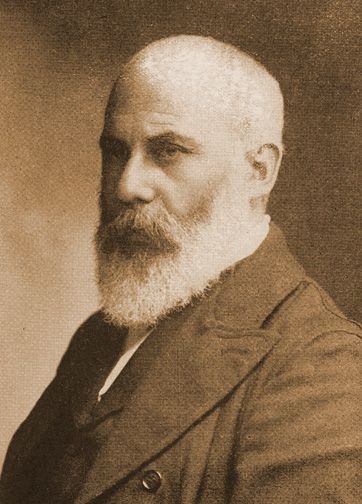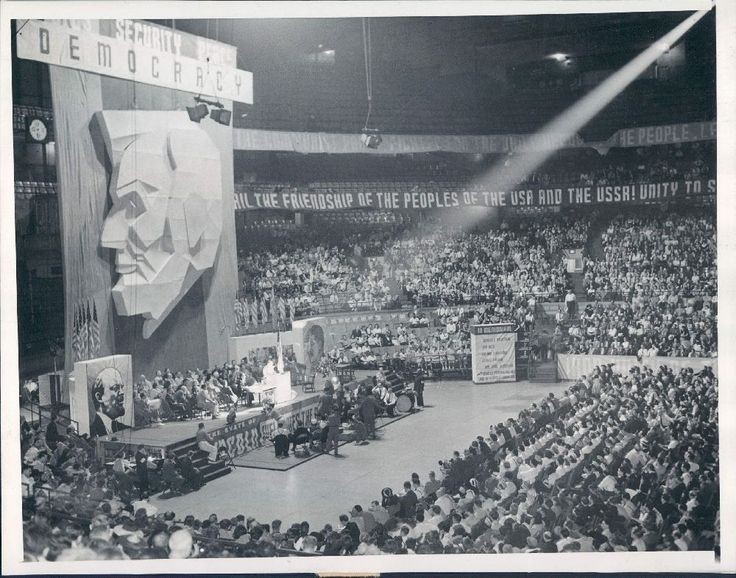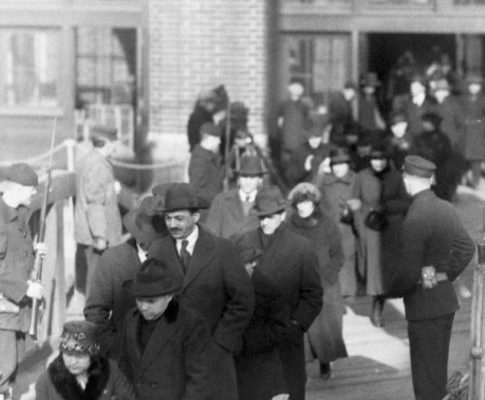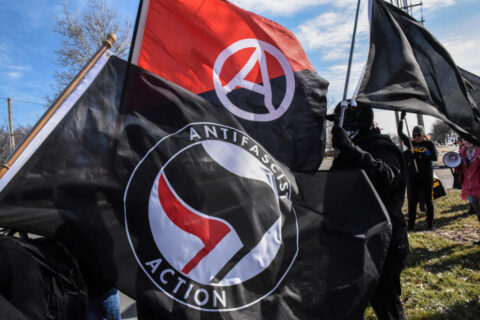Before we begin, I want to offer a bit of a prologue since this will be a series of articles due to the expansive nature of this topic: a cold-war, political attack on the American way of life. The goal of this series is to inform you with facts and history, so that you, the reader, may realize how America currently sits at the crux of two roads diverged. This is especially relevant due to the upcoming presidential election, where it is increasingly likely that Trump will be pitted against a socialist Democrat, one Bernie Sanders.
Let me ask you this, have you considered what happens after Trump? Three societal pillars are at the heart of this cold-war attack: American academia, media, and politics. These three entities are central to the American way of life because they determine how America is educated, informed, and governed. As you can infer, if you were going to permanently change a society from within, it would require the utilization of these societal pillars, and, unfortunately for us, a covert, political operation is underway to change these three pillars. It threatens the American way of life as we know it. Before you dismiss this as hogwash and conspiracy theory, take the time to read this series and form a solid opinion. For me to even produce these articles, it required copious hours of research and an in-depth review of American history. All of which must then be wrapped up in a nice, tidy bow for a concise presentation for you, without deviating too much into individual detail.
Part 1 – The Start of American Socialism (1900 – 1929)
On November 8, 2016, modern era American politics forever changed when Donald J. Trump was elected president of the United States of America. The swamp-culture of Washington D.C. had been unseated by the proletariat of America with the election of a businessman to the presidency. However, in order to talk about the present day, we must first discuss the past, including some American history, so that everyone may have a basic understanding of the topics at hand. It all started with the Industrial Revolution, and in 1901 with the creation of the Socialist Party of America (SP).
Socialism emerged in response to the extreme economic and social changes caused by the Industrial Revolution, and, particularly, the struggles and conditions of the working class. In the first half of the 19th century, early socialist thinkers like Robert Owen, Charles Fouier, and Henri de Saint-Simon offered their own models for re-organizing society to resemble cooperation and community. Then, in the second half of the 19th century, Karl Marx and The Communist Manifesto arrived. In the manifesto, a chapter was included criticizing the earlier models as “utopian” dreams, which, to be fair, is not a wrong assessment.
Socialism itself is a utopian dream; with the human element, true socialism is impossible. One of the main arguments in the manifesto is the working class will seize control over the means of production, forever erasing a class system. Unsurprisingly, when the SP was created in the early 20th century, it declared its primary goal to be the collectivization of the means of production.
The SP was by no means the first socialist organization in the United States. The economic dislocations and inequalities wrought by the Industrial Revolution in the 19th century enthused immigrant workers, native-born workers, and social reformers alike to create a range of socialist organizations in the United States. The most durable of which was the Socialist Labor Party (SLP), established in 1877. However, the SLP’s authoritarian leader, Daniel De Leon, alienated many both within and outside the party. In 1901, opponents of the SLP called a Unity Convention in Indianapolis in an effort to create a new, more inclusive Socialist Party.

One of the first acts of the convention was to create a new party called the Socialist Party of America (SP) and to develop a set of general principles to guide it. The foundational statement of the SP declared that the “exploitation of labor will come to an end only when society takes possession of all the means of production for the benefit of all the people.” It argued that both economic and political action would be necessary to realize collective ownership of the means of production.
In addition to the establishment of general principles, agreements were reached about the party’s structure. A highly decentralized and democratic structure was decided upon, which enabled it to adapt to the needs and cultures of diverse constituencies in different regions of the county. Among those attracted to the platform were immigrant and native-born workers and their families, tenant farmers, urban reformers, feminists, middle-class intellectuals, and millionaires who found it trendy. By 1912, the SP enjoyed an astonishing record of electoral successes at the local, state, and national levels (sound familiar to present day?). To this date, the SP had elected over 1,200 socialists to political office, including aldermen, mayors, state legislators, and two congressmen. As historian Jack Ross suggested, the SP developed a, “significant political presence in every part of the county except the Southeastern seaboard from Maryland to Georgia.” While the future looked bright for socialists in 1912, these achievements only disguised the developing problems within the SP.
Towards the end of 1912 and into 1913, a fissure opened between the left and right factions of the party, and the SP faced continuing problems in assimilating and appealing to African Americans and women. Conceivably, the critical factor hampering recruitment of African Americans were the openly white supremacist views of some socialist leaders. Victor Berger, for example, argued that, “negroes and mulattoes constitute a lower race” and believed that, “socialism would be victorious only by keeping the United States a ‘white man’s country.’”
Then, the Mexican Revolution and World War I further divided the SP. The U.S. government, upon President Wilson’s declaration of war on Germany in April of 1917, passed the Espionage and Sedition Acts of 1917 and 1918. These Acts were established out of concern for high levels of opposition to the war, as well as, labor unrest. In addition, these Acts made obstructing military recruitment and slandering the war effort, government, and the Flag illegal. As socialists continued to oppose the war, a myriad of socialists found themselves indicted and sometimes jailed. However, the government did not cause the SP’s decline. If anything, party membership grew during this time. The war, and the revolutionary upheaval it brought, did provoke divisions and splits within the party though. To add to the damage created by The Great War, the Bolshevik Revolution, and the victory of the Russian communists, incited party defections.
Problems arose for the SP in January of 1919 – firstly, when the Bolsheviks laid plans for the Third International, the communist organization that advocated for world communism, and called on workers world-wide to take part in “mass action” to reach a “dictatorship of the working class,” and, secondly, when a Labor Party movement arose in the Midwest. In 1919, during the post-WWI era, the Red Scare was provoked due to the outbreak of these extremist politics and in combination with activist labor strikes and an anarchist bombing campaign. Authorities launched raids that led to mass arrests and deportations of activists, anarchists, communists, and socialists.
Continuing in to the 1920s, the American communist membership numbers began to pick back up, while the socialists remained estranged and small in number. The SP was further undercut during the Great Depression by Roosevelt’s New Deal, and by communists integrating themselves into the Congress of Industrial Organizations, a federation of unions that organized workers. This brings us to the end of early American socialism and begins American communism.
-By Gaius Octavius
To be continued…


O I’m a good old rebel, now that’s just what I am. For this “fair land of freedom” I do not care at all. I’m glad I fit against it, I only wish we’d won, And I don’t want no pardon for anything I done.




The history of Europe and the US has been one of continued war against marxism, whether it’s served up as piss porridge by some benevolent socialist dreamers or by “real” socialists like Lenin, Stalin, Mao, Pol Pot and others. It’s essentially a “name your way of death” policy and Americans have always fought those who would perpetuate it.
Seems to me that the nation has lost its way by permitting…under the 1st Amendment…a laundry list of budding dictators to hold political office and to vie for the presidency. America’s budding azzclown socialists candidates should be charged with treason, attempts to over throw the American government and then be stuffed into State prisons among the general population. Let’s see just how much that like that socialist system.